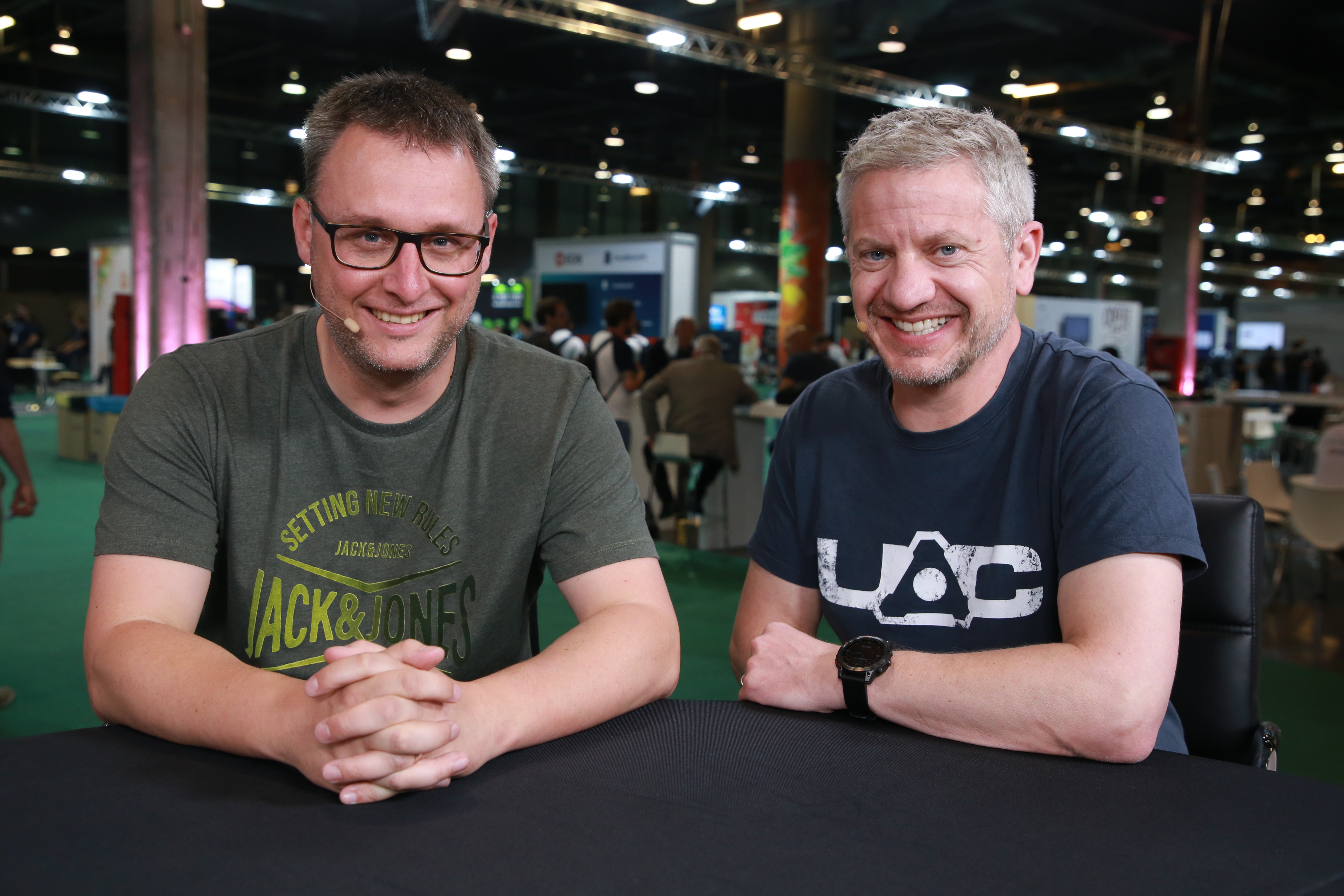 NEWS
NEWS
 NEWS
NEWS
 NEWS
NEWS
High-performance computing is the aggregation of computing hardware units to deliver exponentially higher performance and perform more complex calculations. While it powers many of the world’s cutting-edge research, among other things, the innovation within HPC itself has been slow to develop.
“HPC is a bit slow in adopting new technologies,” said Kenneth Hoste (pictured, left), HPC system administrator at Ghent University in Belgium. “But we’re definitely seeing some impact from cloud, especially things like containers and Kubernetes, and we’re starting to hear these things in the HPC community as well. But I haven’t seen a lot of HPC clusters that are really fully cloud-native.”
Hoste and Marcel Hild (pictured, right), senior manager of AIOps, AI CoE, Office of the CTO, at Red Hat Inc., spoke with theCUBE industry analysts Paul Gillin and Keith Townsend at KubeCon + CloudNativeCon Europe, during an exclusive broadcast on theCUBE, SiliconANGLE Media’s livestreaming studio. They discussed the intricacies of aligning HPC with evolving computing technologies, including Kubernetes, and how Ghent University and Red Hat are working together to advance data sharing. (* Disclosure below.)
Fortran programming language still governs the HPC scene as a result of its convenience, according to Hoste. Basically, it’s easier to use than C/C++, for instance, in the scientific community. Stakeholders haven’t found a compelling enough reason or use case to make that costly, time-consuming change away from Fortran.
“The use case has to be very convincing; there has to be a very good reason why you would move away from Fortran,” Hoste explained. “And the HPC community at least hasn’t seen that reason yet.”
As a global leader in open source and cloud-native technologies and integrations, Red Hat is working with the HPC user base to evolve technologies, including cloud-native.
“All these problems that we solved in the traditional software development world now have to transition into the data science and HPC world,” Hild explained. “Where the problems are similar, there are different sets. There’s also a huge educational problem — that of transitioning the tools over into those different places.”
To start, at the end of 2021, Ghent University adopted Red Hat HPC technology to create a modular, developer-friendly environment supported by massively scalable data storage. Now, researchers can store, share and explore data to support breakthroughs in academic and industrial scientific challenges.
Here’s the complete video interview, part of SiliconANGLE’s and theCUBE’s coverage of the KubeCon + CloudNativeCon Europe event:
(* Disclosure: TheCUBE is a paid media partner for the KubeCon + CloudNativeCon Europe event. Neither Red Hat Inc., the main sponsor for theCUBE’s event coverage, nor other sponsors have editorial control over content on theCUBE or SiliconANGLE.)
THANK YOU